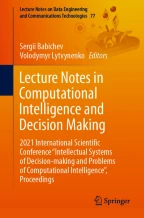Abstract
Mass spectrometry is one of the fundamental analytical techniques of our time. As a rule, the primary processing of mass spectrometric data in modern quadrupole mass spectrometers from leading manufacturers is successfully carried out by both hardware and software. However, the task of extracting mass spectra of complex sources, such as multi-atomic molecules or mixed substances, has no general solution. As comprehensive solutions to the problem of analyzing complex mass spectra, various machine heuristic methods for decomposing the mass spectroscopic signal into higher-level descriptors of the target objects have been developed and continue to be investigated. However, the areas under consideration tend to involve rather complex iterative methods, such as Bayesian networks or optimization problems. These methods are quite effective, but cannot be used in real-time technologies. The paper proposes an example of a relatively simple streaming algorithm that allows one to isolate the same mass spectra components for multi-atomic molecules containing similar fragments.
Access this chapter
Tax calculation will be finalised at checkout
Purchases are for personal use only
Similar content being viewed by others
References
Ahn, H.K., Knauer, C., Scherfenberg, M., Schlipf, L., Vigneron, A.: Computing the discrete frechet distance with imprecise input. Int. J. Comput. Geom. Appl. 22, 422–433 (2010)
Calhoun, V., Liu, J., Adali, T.: Are view of group ICA for fMRI data and ICA for joint inference of imaging, genetic, and ERP data. Neuroimage 45(1), 163–172 (2009)
Cicone, A.: Nonstationary signal decomposition for dummies. Adv. Math. Methods High Perf. Comput. Adv. Mech. Math. 41(3), 69–82 (2019)
Cicone, A., Liu, J., Zhou, H.: Adaptive local iterative filtering for signal decomposition and instantaneous frequency analysis. Appl. Comput. Harm. Anal. 41(2), 384–411 (2016)
Coombes, K.R., Baggerly, K.A., Morris, J.S.: Pre-processing mass spectrometry data. Fund. Data Min. Genom. Proteomics 4, 79–102 (2007)
Dragomiretskiy, K., Zosso, D.: Variational mode decomposition. IEEE Trans. Signal Process. 62(3), 531–544 (2014)
Eiter, T., Mannila, H.: Computing Discrete Fréchet Distance. Technical Report CD-TR 94/64. CD-Laboratory for Expert Systems, TU Vienna, Austria (1994)
Har-Peled, S., Raichel, B.: The Fréchet distance revisited and extended. ACM Trans. Algo. 10(1), 3:1–3:22 (2014)
Kang, H.D., Preuss, R., Schwarz-Selinger, T., Dose, V.: Decomposition of multicomponent mass spectra using Bayesian probability theory. J. Mass Spectro. 37(7), 748–754 (2002)
Kopriva, I., Jeric, I.: Multi-component analysis: blind extraction of pure components mass spectra using sparse component analysis. J. Mass Spectro. 44(9), 1378–1388 (2009)
Mijović, B., De Vos, M., Gligorijević, I., Taelman, J., Van Huffel, S.: Source separation from single-channel recordings by combining empirical-mode decomposition and independent component analysis. IEEE Trans. Biomed. Eng. 57(9), 2188–2196 (2010)
Singh, P., Joshi, S.D., Patney, R.K., Saha, K.: The fourier decomposition method for nonlinear and non-stationary time series analysis. Proc. Roy. Soc. A Math. Phys. Eng. Sci. 473(2199) (2017)
Toussaint, U., Dose, V., Golan, A.: Maximum entropy decomposition of quadrupole mass spectra. J. Vac. Sci. Technol. A Vac. Surf. Films 22(2), 401–406 (2004)
Vautard, R., Yiou, P., Ghil, M.: Singular-spectrum analysis: a toolkit for short, noisy chaotic signals. Physica D Nonlinear Phenomena 58(1–4), 95–126 (1992)
Author information
Authors and Affiliations
Editor information
Editors and Affiliations
Rights and permissions
Copyright information
© 2022 The Author(s), under exclusive license to Springer Nature Switzerland AG
About this paper
Cite this paper
Olszewski, S. et al. (2022). Streaming Algorithm to the Decomposition of a Polyatomic Molecules Mass Spectra on the Polychlorinated Biphenyls Molecule Example. In: Babichev, S., Lytvynenko, V. (eds) Lecture Notes in Computational Intelligence and Decision Making. ISDMCI 2021. Lecture Notes on Data Engineering and Communications Technologies, vol 77. Springer, Cham. https://doi.org/10.1007/978-3-030-82014-5_3
Download citation
DOI: https://doi.org/10.1007/978-3-030-82014-5_3
Published:
Publisher Name: Springer, Cham
Print ISBN: 978-3-030-82013-8
Online ISBN: 978-3-030-82014-5
eBook Packages: Intelligent Technologies and RoboticsIntelligent Technologies and Robotics (R0)
